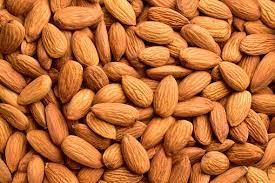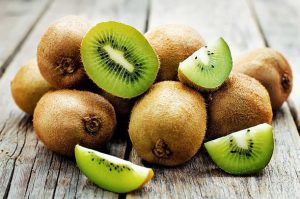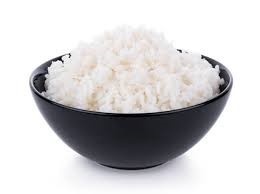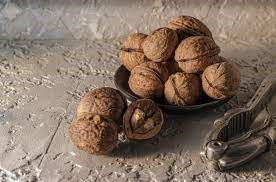The choice of food we eat goes a long way in determining the quality of sleep we get.
According to the Medical Director of the Centre for Sleep Medicine at the NY Presbyterian and Weil Cornel Medicine, Ana Krieger, “Eating healthy and allowing the body to absorb proper nutrients provide the brain with the chemical environment that it needs to produce the neurotransmitters necessary for maintaining adequate sleep.”
Krieger added that the nutrients we get from food serve as the building blocks for other minerals and proteins that are needed to create the amino acids that are involved in sleep.
This being the case, what kind of foods should we be eating to have a healthy sleep?
Almonds

According to Medical News Today, melatonin – a hormone responsible for the regulation of the sleeping and waking cycle, is present in large quantities in almonds. This makes them a very handy weapon in the fight against insomnia.
Apart from the fact that almonds are also high in healthy fats and low in sugar and saturated fats, they also contain calcium and magnesium in generous amounts, two minerals that help the muscle relax and boosts sleep.
Adopting almonds as a late snack would help boost the quality of your night’s sleep.
Kiwis

Kiwis come stacked with vital nutrients that are needed for health and well-being, like; Vitamins C & E, Potassium, and folate. Studies have also been made into their potential to aid the digestive process, boost immunity, and fight insomnia.
Kiwis have high serotonin contents – a substance that helps the brain in producing melatonin needed for the regulation of sleep. This explains their ability to help combat sleeplessness.
According to Medical News Today, a small study proved that people who ate kiwis an hour before going to sleep for a month experienced improved sleep and even had a little difficulty falling asleep.
Fatty fish

Fishes are rich in protein and myriads of other vital minerals and nutrients like zinc, choline, vitamin B12, and iron. However, eating certain types of fish that are high in fats has been discovered to help improve sleep quality. Some of these fishes are Salmons, Tunas, Herring, mackerels, and sardines among others.
These fishes have high omega-3 fatty acids and Vitamin D contents which both help in the regulation of serotonin. This makes them crucial for the maintenance of a healthy sleep-wake cycle.
A study carried out proved that men who ate 300 grams of salmon, three times a week, fell asleep ten minutes quicker than men who ate chicken, beef, or pork.
White rice

As awkward and weird as this might sound, this household favorite also makes our list of foods that can help beat insomnia and boost sleep quality.
This is because white rice is high in carbohydrates, which our body needs to produce tryptophan: tryptophan is needed by the body for the production of serotonin, which then converts to melatonin.
Additionally, some studies suggest that eating foods with a high glycemic index like white rice, an hour before going to sleep may help to boost the quality of sleep.
It is however important to note that white rice is better consumed sparingly or in moderation, due to its relatively limited nutrient content. Eating it with other high-nutrient-content foods like green leaves and fatty fish would help improve its potential for bodily nourishment.
Walnuts

Rich in fiber and over 19 vitamins and minerals, especially magnesium, phosphorus, manganese, and copper, walnuts are a miracle.
Walnuts, according to the results of some researchers, are one of the topmost sources of melatonin. This naturally makes them a valuable weapon in the fight against insomnia and sleeplessness.
However, despite the inherent high content of melatonin in walnuts, there is still yet to be any concrete evidence linking them together with better sleep.
Walnuts can be gotten from local markets and food stores around.
Conclusion
Humans, over the years, have always employed the use of foods and drinks in the treatment and fight against insomnia. The growth in the number of positive research and scientific studies backing these claims up also lends credence to them and proves their potential to help boost sleep quality.
Since all the above-listed foods are completely natural, it won’t do any harm to try them out and get to know which of them works best for your system.
However, if there are no signs of improvement, seeing a healthcare specialist might be necessary as insomnia could also be a sign of an underlying condition.


